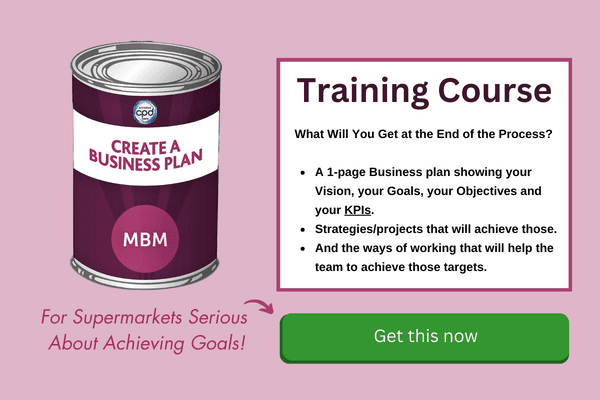Commercial Awareness
Understanding how your business works and makes money is essential to improving your overall ROI (Return On Investment) and creating a long-term sustainable business model. One of the solutions to manifest this dream is to understand ‘commercial awareness,’ which enables you to look around and see what is happening, especially in the financial and business news.
Commercial awareness is a term especially seen when researching international and city firms. Commercially aware organisations or firms always think about developing new ideas, business opportunities, and products, making processes more reliable and systematic, reducing business-related risks, upgrading customer service and after-sale service, and many more.
An organisation should strive continuously to sharpen its commercial skills and awareness, an essential requirement in today’s era. But why is this crucial to business success? In this blog, we will learn what commercial awareness is and its commercial importance for your business.

What is Commercial Awareness?
Commercial awareness is a term that is used to explain the understanding of how businesses operate and what are current trends in the business world. It is most commonly used in research and law firms to describe a person’s understanding of a particular business process, operations, or trends in the industry.
Commercial awareness doesn’t just entail the money-making side of the business. It also focuses on understanding what the customers want, the problems they face, the organisation’s core values, key stakeholders, business challenges, competitors, and other aspects of the business that showcase a deeper understanding of the market or the business.
Reasons Why Commercial Awareness is Helpful
- Commercial awareness helps you know the current trends well, ultimately allowing you to predict future trends.
- It enables you to understand the marketplace well, ensuring that you can create the right business strategy depending on the demand and market trends.
- The future of an industry is intelligently speculated because of commercial awareness, making it essential to learn for any forward-thinking business.
- Commercial awareness helps you to become an expert in industries or businesses in which you are interested.
- Commercial awareness provides detailed information on your core business and products, which improves your knowledge of the competitors and businesses and helps you understand the market better.
10 Ways to Improve Your Commercial Awareness

As we have seen, developing commercial awareness can help businesses in more ways than one and is crucial no matter which industry you are focused on. But how can one learn and improve commercial awareness? Luckily, there are a few simple steps that one can follow to know and boost your commercial awareness:
Sticky Learning ® is 7 times more effective than 1-day training courses. Plus, you will get a Chain of Evidence proving your Return on Investment. Discover soft skills training that changes behaviours long term.

1. Get a Wide Range of Work Experience
Good work experience, internships, and part-time work offer the best options for developing commercial awareness. Especially at the beginning of one’s career, it is highly beneficial to keep the options open and try out multiple options. This experience can help you gain an understanding of the following key aspects:
- Raw material suppliers of the business.
- Competitors of the business/firm.
- Target customer/customer base.
- Study the balance sheet for profits and losses.
- External factors can affect the business or working module.
- Commercial stand of the business in the media.
- Standing of the company in the market.
Contributing some unique and reliable ideas to develop the business happens when you truly understand and identify business opportunities. This wide range of experience can also help you provide innovative ideas and business changes.
For example, suggesting a promotional event for launching new products or offering some changes in the restaurant’s menu card shows your interest in the industry and its development.
2. Keeping Yourself Updated
Keeping track of every detail around you and your workplace is always good. So you keep track of things happening around you, primarily through business and financial news. Reading business news from an exclusive newspaper provides you with the current situations and happenings worldwide. It also provides you with the latest alterations or introductions of new policies by the government.
As per your interest and work, you can choose the news you should focus on, which will help you contribute some ideas to the business. Then, as you start taking more interest in such news, you intuitively start following and reading more specialised industry-related articles and publications.
It is easy and affordable to keep yourself updated with the latest news through online portals or podcasts from your preferred broadcasting service. This way, you have easy and broad access to any information you want to access, which will help you to keep up with current affairs and situations.
3. Research the Firm

Researching the firm’s structure is very beneficial for you and the firm. This is especially important when working with a business client or an organisation with a large global team and will require you to know the exact details of each team and its key stakeholders.
When researching the firm, ensure you understand the content or the materials the brand is creating or marketing, as this can help tell a lot about the company or its target market. Many brands will make promotional videos, publish news or blogs, and distribute industry white papers or other research materials that help showcase their core expertise. Following these materials can help you improve your brand’s commercial awareness.
Researching the firm helps you understand its exact position, competitors, principles, working models, customer base, financial planning, expansion plans in the future, current debt, etc. The research will provide detailed information about the current company’s position, the scope for further development, planning, and financial aspect, which will make it easy for the firm to watch out for opportunities and threats if any.
4. SWOT & PESTLE Analysis
SWOT analysis, which stands for Strenght, Weaknesses, Opportunities, and Threats, enables you to know the firm’s current position by assessing the external and internal factors that would affect the business at any stage.
This analysis of the company’s position and standing can provide a clear picture of what the organisation is and where it can go by focusing on its strengths and other aspects crucial for business success. SWOT analysis helps you boost your commercial awareness skills.
In addition to SWOT analysis, there is also a lesser-known industry term that is equally essential. PESTLE analysis provides the most detailed framework to help one get into the core aspects of the business. With PESTLE analysis the following factors are considered:
- Political
- Economic
- Social
- Tech
- Legal
- Environmental
Since PESTLE analysis uses specific industry terminologies, these details help create a long-term strategy for the organisation. They can create a solid understanding of the business and its commercial importance.
5. Join a Business Community / Talk to Experts
Joining the business community and communicating with the experts helps you get exposure to company workshops and presentations. In addition, dealing with company experts enables you to illustrate commercial awareness in interviews, public speaking, and debates.

While building a network or getting the right connections can be challenging initially, you will keep making new connections and meet experts who know their stuff as you progress. The key is to build effective relationships and widen your network while keeping your eyes and ears open.
Talking to experienced business leaders of the industry helps you to grow not just your knowledge but also your confidence. This is because the knowledge or expertise you gain by networking with leaders in the industry comes directly from the horse’s mouth and is verified or well-known industry facts.
In particular, look closely at the jargon, the facts, and the lesser-known aspects of the business that you can learn only from the experts, who, with their years of experience, can help you zero in on the key aspects and build a solid commercial awareness. This will help you sharpen your interpersonal and public skills and sharpen your knowledge.
6. Find the Aspects of the Business That Interests You
While the beginning of improving your commercial awareness can become a task, it doesn’t have to be complex. Instead, focus on your genuinely interested aspects and have a background. By starting with the basics or the subject that appeals to you, you can slowly get curious and go in-depth in your assessment.
Use examples and connect the learnings with your work, as this can help make commercial awareness practical and valuable. By focusing on the things that genuinely interest you, there is also a strong likelihood that you can choose to specialize in that chosen aspect, which is a substantial value add to your career.
Be it law firms or a company; there is always a requirement for subject matter experts or those with industry or niche expertise, which will help you differentiate yourself from the competition.
7. Do Not Forget to Make Notes and Create Materials That You Can Refer To
Learning is one aspect of commercial awareness, but the term also focuses on one’s ability to showcase their expertise in the business world. You can enrich your understanding and expertise in the domain by continuously reading and adding new knowledge about the business. However, several aspects of the company require you to keep facts, figures, and data handy for use as needed.
This includes factual information, numbers, contextual data, or any other industry figure that helps make your point or argument stronger. Since this data cannot be easily recalled, the ideal thing is to take notes and create short content or a summary of the information you can keep handy at all times.
While text or hand-written notes are good, one can even get into the habit of having audio messages. Audio notes can be quickly taken via your smartphone using the AI assistant and heard in your comfort. It is easier to listen to your notes later than to read them.
8. Make Commercial Awareness a Long-Term Goal

Commercial awareness should be a part of your goal throughout your career development and at every stage of your profession. Keep up-to-date knowledge about the political, social, and economic situations around you and grab the opportunities to evaluate and improve your execution and perception. As you progress and reach a higher stage in an organisation, commercial awareness becomes more critical and intense.
Commercial awareness helps you to contribute positively to the business by suggesting improvements, spotting opportunities, and bringing change to the organisation.
9. Evaluate & Prioritise
Commercial awareness is not just about gaining an understanding of the company or the business but is also about the practical implementation of this knowledge. Since commercial awareness focuses on multiple aspects that have a direct impact and indirectly impact the company or businesses’ financial elements, you can use this knowledge to help prioritize and evaluate its core projects.
Make sure to use the SWOT analysis and other factual data to prioritize the tasks that fit your brand’s vision and reprioritize the ones that do not have a direct value add. This can help the organisation focus on the aspects that matter and build internal structures, processes, and resources that align with this vision.
10. Allow it to Flow, Do Not Overthink it
In most cases, commercial awareness is not something that can be gained or understood in one sitting. It takes a lot of detail, understanding, and continuous research to upgrade oneself and reach a satisfactory level. Make sure you have a plan of activities and keep ticking it off while creating a regular practice of going through activities and materials that will help enhance your knowledge of the chosen industry or business.
Make sure this does not end up becoming a strain on your professional actives. But instead has small but regular value-add to enhance your core expertise. The idea of commercial awareness is not to be a burden but to become an asset for your professional growth and career.
How and When is Your Commercial Awareness Analysed?

You will be required to demonstrate your commercial awareness on multiple fronts in your career, but some of the most critical situations when this will be analysed are:
- During the interview process, when the organisation wants to get an understanding of how well the candidate knows the organisation and the marketplace.
- During onboarding or dealing with a new client. The client will always prefer to work with representatives who know the industry and have a strong commercial awareness of the business.
- During any promotion or upscaling opportunities, the organisation is always looking for individuals who do not just perform their role perfectly but also have commercial awareness to help strategize and craft a roadmap for the larger organisation.
Potential Questions
Although commercial awareness can be showcased during interviews when you are asked pertinent questions about the business, there are several ways to make commercial awareness part of your business dealings. For example, if you are meeting a potential client and want to showcase to them the level of understanding you or your firm has when it comes to their business or industry, make sure you answer potential questions like:
- The typical challenges faced by organisations in a particular industry. Make sure this is research-driven and not based on assumptions.
- Your analysis of the organisation and where it is heading
- The financials of the organisation that is available from public data, e.g., the share value, profits, annual figures, areas that need improvement, etc.
- The key competitors of the products or services provided by the firm
Additional questions form a part of your commercial awareness, and this list is just a starting point to showcase how you can teach your learnings to help provide value and bring out your expertise in the domain.
Conclusion
Commercial awareness has several aspects and should ideally form a part of your professional development and career. It entails not just the outcome or leanings you can get. Still, it will create a thought process or life mission that enables you to embrace opportunities, keep assessing any situation, and continually improve your understanding and performance.
With this mindset, you can quickly build a reputation and reach the higher echelons of your career or organisation. It becomes not just something to have but something that can propel you to keep progressing throughout your professional career.
So make sure you adopt the methodology of having stellar commercial awareness and getting an in-depth understanding of any industry, technology, business sector, or organisation you work with. It helps focus on the commercial importance of the business. Also, it helps to understand several aspects of the company, making it integral to form long-term expertise in the particular industry or subject area.




